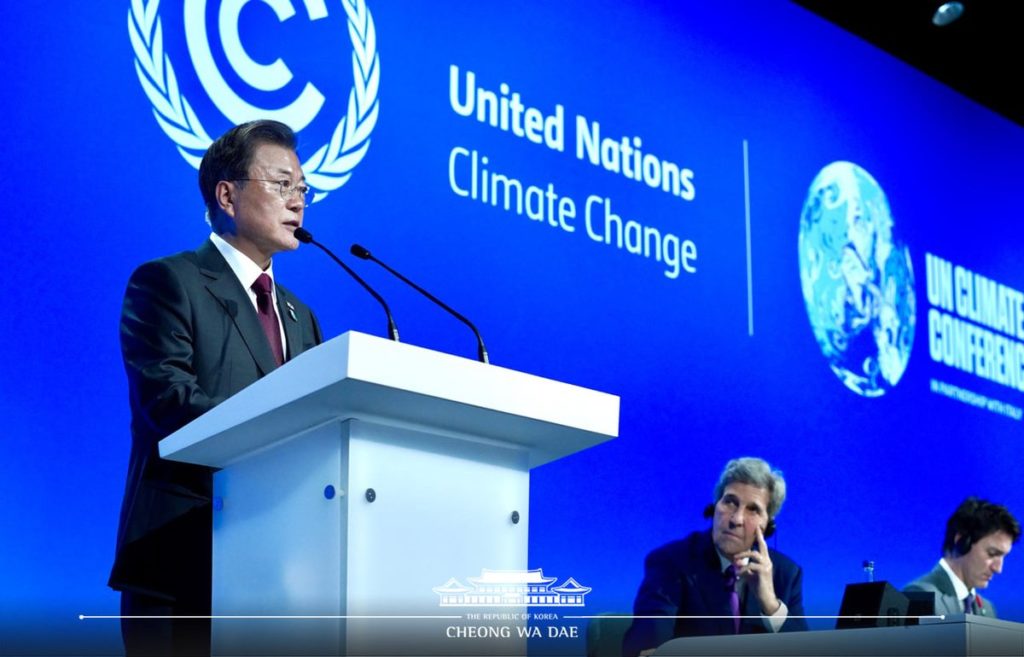The Peninsula
2021 in Review: South Korea’s Push to Become Carbon Neutral

This is the tenth in a 10 part series looking at how the issues identified in KEI’s annual “10 Issues to Watch for on the Korean Peninsula” series developed in 2021. The original “10 Issues” piece can be found here.
In recent years, South Korea has taken steps to reduce greenhouse gas emissions, including a pledge by President Moon Jae-in in 2020 that the economy will become carbon neutral by 2050. In 2021, South Korea took two significant steps towards achieving Moon’s goal of setting South Korea on a path towards carbon neutrality.
In August, South Korea became the 14th country to legislate its commitment to become carbon neutral by 2050. Under Seoul’s carbon neutrality law, South Korea set a new nationally defined contribution and is required to cut its greenhouse gases by 30 percent in 2035 from 2018 levels. As part of the legislation, both the central government and provincial governments are developing their own implementation plans to reduce carbon emissions under the law.
At COP26 in Glasgow, the UN summit to address climate change, South Korea pledged to further reduce its carbon emissions by submitting a new nationally defined contribution that would reduce its greenhouse gas emissions by 40 percent from 2018 levels by 2030. The new commitment is designed to be in line with Seoul’s commitment to carbon neutrality by 2050 and would require South Korea to reduce emissions by at least 4 percent a year. The new 2030 commitment would require a reduction of an additional 72 million tons of emissions by 2030 from its prior commitment in 2020.
In addition to its new nationally defined contribution, South Korea joined the Global Methane Pledge to reduce methane emissions 30 percent by 2030 and the Glasgow Leaders’ Declaration on Forests and Land Use at COP26. As part of it commitment to deforestation, South Korea is aiming to achieve 5 percent of its total commitment to emissions reductions through reforestation efforts abroad, including in North Korea.
Despite South Korea’s increased ambitions for emissions reductions, Climate Action Tracker estimates that for South Korea to achieve carbon neutrality by 2050 it needs to increase its 2030 emissions reductions target to 59 percent below 2018 emissions levels.
While South Korea will require further emissions reductions if it is to achieve carbon neutrality by 2050, 2021 was significant for both codifying Seoul’s commitment to carbon neutrality and raising the level of ambition for emissions reductions.
Troy Stangarone is Senior Director and Fellow at the Korea Economic Institute of America. The views expressed here are the author’s alone.
Photo from the Twitter feed of the Office of President Moon Jae-in.
